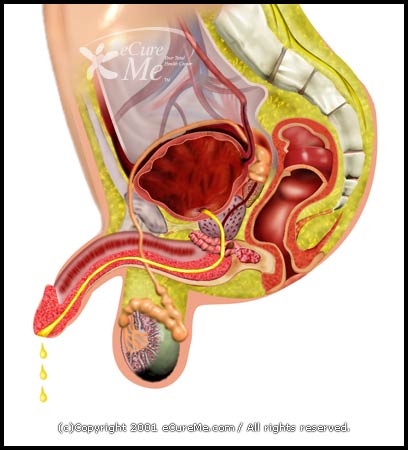 Gonorrhea is a sexually transmitted disease (STD) caused by a bacterium called Neisseria gonorrhoeae. It can also be transmitted from pregnant mothers to their babies at birth.
Gonorrhea is a sexually transmitted disease (STD) caused by a bacterium called Neisseria gonorrhoeae. It can also be transmitted from pregnant mothers to their babies at birth. Gonorrhea most commonly affects teens and young adults. Experts believe that hundreds of thousands of cases go undetected and untreated because the infection does not always have noticeable symptoms. Many people who have gonorrhea also have another common STD called chlamydia. So when doctors diagnose or suspect a case of gonorrhea, they often screen for and treat other STDs too.
Gonorrhea is preventable — and treatable — so anyone having sex (oral, anal, or vaginal) should take precautions against STDs and get screened for them regularly.
Symptoms
Many times gonorrhea does not produce any symptoms. When there are symptoms, the infection can cause painful urination and a cloudy discharge from the penis or vagina. This discharge may be thick and may have a greenish-yellow color. Males may have swelling or pain of their testicles. Females may have lower abdominal pain, painful intercourse, and abnormal bleeding from the vagina.
Gonorrhea can cause rectal pain, especially during a bowel movement. A sore throat can result from a gonorrhea throat infection.
If gonorrhea goes undetected and untreated, it can lead to more serious health problems. In males, it can cause scars inside the urethra, which can make urination difficult. In females, untreated gonorrhea can spread upward from the vaginal area to cause acute pelvic inflammatory disease (PID) — an infection of the uterus, fallopian tubes, or ovaries. It can lead to abscesses in the fallopian tubes and even infertility.
In males and females, gonorrhea that goes undetected can spread through the blood to parts of the body that are far from the reproductive organs, and lead to inflammation in the joints, the skin, the bones, tendons, heart, or even the area around the liver.
Prevention
Because gonorrhea is spread through sexual contact, the best way to prevent it is to abstain from having sex. Sexual contact with more than one partner or with someone who has more than one partner increases the risk of contracting any STD.
When properly and consistently used, condoms decrease the risk of STDs. Latex condoms provide greater protection than natural-membrane condoms. The female condom, made of polyurethane, is also considered effective against STDs.
Although birth control pills offer no protection against STDs, they may provide some protection against PID by causing the body to create thicker cervical mucus, making it more difficult for bacteria to reach the upper genital tract.
Using douche can actually increase a female's risk of contracting STDs because it can change the natural flora of the vagina and may flush bacteria higher into the genital tract.
Treatment
Like other STDs, gonorrhea may seem to get better but still be present. The fact that a discharge lessens or disappears after a few days with no treatment does not mean that the infection has gone away. And untreated STDs can spread and cause other complications.
If gonorrhea is suspected, the doctor will send urine or samples of fluid from the urethra (at the end of the penis) or the cervix to a laboratory for examination. If the doctor thinks it has spread, more tests may be necessary.
If gonorrhea is caught early, it can be treated with antibiotics. Because the symptoms of gonorrhea are similar to those of chlamydia, and because a person can be infected with both, people with gonorrhea are sometimes treated for both diseases.
A teen who is being treated for gonorrhea also should be tested for other STDs, and should have time alone with the doctor to openly discuss issues like sexual activity. Not all teens will be comfortable talking with parents about these issues. But it's important to encourage them to talk to a trusted adult who can provide the facts.
All teens who have had any type of sex (vaginal, oral or anal) should be screened regularly for STDs so that they don't lead to other more serious health problems. It's also important for them to notify any sexual partners if they have an STD.
Getting Help
If your teen is thinking of becoming sexually active or already has started having sex, it's important to talk with him or her about it. Make sure your teen knows how STDs can be spread (during anal, oral, or vaginal sex) and that these infections often don't have symptoms, so a partner might have an STD without knowing it.
It can be difficult to talk about STDs, but just as with any other medical issue, teens need this information to stay safe and healthy. Provide the facts, and let your child know where you stand.
It's also important that all teens have regular full physical exams — which can include screening for STDs. Your teen may want to see a gynecologist or a specialist in adolescent medicine to talk about sexual health issues. Community health organizations and sexual counseling centers in your local area also may be able to offer some guidance.